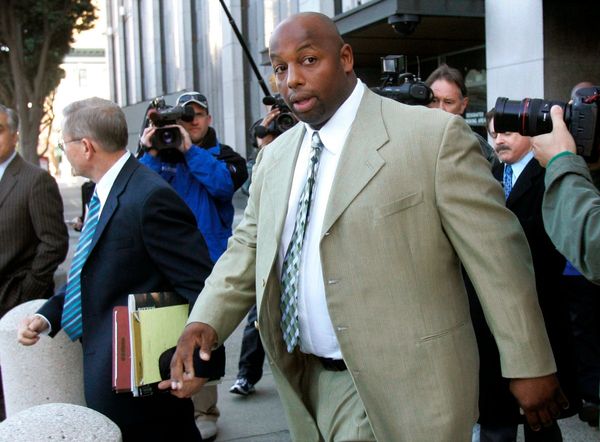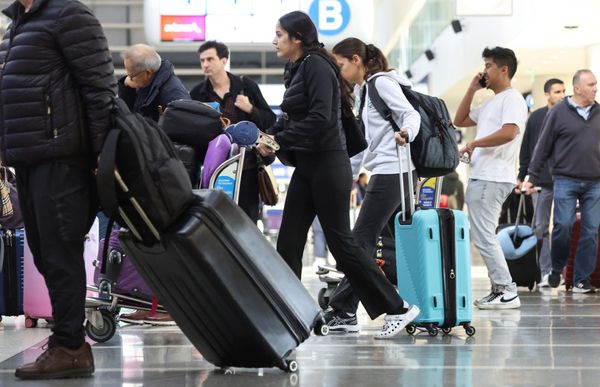
Seventy-five years ago, at the dawn of the Cold War, US foreign policy thinkers divided into three camps over how to deal with the threat of Soviet expansion.
Those on the left, led by Henry Wallace, Progressive Party candidate in the 1948 US election, argued for accommodating what they regarded as then-Soviet leader Joseph Stalin’s legitimate security concerns over his western flank. Those on the right, including philosopher and polemicist James Burnham (author of the 1947 The Struggle for the World), insisted that Stalin was bent on fostering world revolution and had to be stopped, even at the cost of fighting World War III.
Those in the centre, including the statesmen around then-president Harry Truman, viewed the Soviet Union as a dangerously aggressive power but argued that its expansion could be “contained” until, as US diplomat George Kennan suggested, the regime had mellowed or disappeared.
Today, as Russian President Vladimir Putin threatens to invade Ukraine and upend the international order Truman built, all three of those Cold War tendencies have reappeared.
Columnist in The New York Times Peter Beinart argues for accommodation on the grounds that Putin is asserting a right of dominion over his neighbourhood that the US — liberal pieties notwithstanding — continues to live by. (John Bolton, former US president Donald Trump’s bellicose and brief national security adviser, once declared the Monroe Doctrine “alive and well”.)
On the other side, foreign policy expert Kori Schake in The New York Times called on US President Joe Biden to station US troops in Ukraine as a sign of American unwillingness to yield to Russian revanchism.
Biden, who already resembles Truman in so many ways, seems to be recapitulating Truman’s Cold War role. But it’s not clear what, if anything, containment means in the current crisis.
Contemporary versions of accommodation and roll back are as misguided as their ancestors were. The US cannot yield to Putin’s demands without accepting a worldview radically at odds with its own, for Putin’s belief in his right to control the nations at his frontier includes the idea that lesser states do not enjoy the same sovereign rights as great powers.
Of course if you believe — as researcher Anatol Lieven recently argued in Foreign Policy — that the “rules-based global order” is a euphemism for “US primacy” or, as Beinart claims, that the US regards Central America as cynically as Russia regards Georgia or Ukraine, than nothing is lost by acceding to Putin’s demands.
As for planting US forces in Ukraine and daring Putin to risk a wider war by attacking, the US shouldn’t make a wager it can’t afford to lose.
The US need not doubt the sincerity or depth of Putin’s conviction that the West is seeking to fence Russia out of Europe, and thus that he is in danger of losing a zero-sum game. The fact that Putin really believes it doesn’t make it true even though he’s wrong doesn’t make him any less committed to restoring what he considers Russia’s rightful place.
Deterrence may not work because Putin doesn’t seem to be bluffing. Even if he decides against sending tanks across the border — as he might be signalling with recent news that some troops are being sent home — but rather tries to knock out Ukraine’s infrastructure or reignite hostilities in Donbass, US soldiers won’t be able to give much help.
The Cold War offers no single, compelling analogy to the current situation because, at that time, Russia operated only within a sphere the West had conceded to it: Truman accepted the Soviet coup in Czechoslovakia in 1948 as then-US president Dwight D Eisenhower did in the case of Hungary in 1956. Ukraine, by contrast, is an independent state whose independence Putin does not accept.
What really connects that time to this is Truman, former US secretaries of state Dean Acheson and George Marshall and others had to find a way of acting and speaking that acknowledged the reality of Russian aggression without conceding its legitimacy. Truman neither accepted the 1948 Berlin blockade by the Soviet Union, nor did he agree to proposals to shoot his way in; he found a way around it with the airlift.
What does that mean today? First, it means rejecting proposals to “Finlandise” Ukraine as well as, presumably, Georgia and other former Soviet states — a possibility French President Emmanuel Macron raised. To impose neutrality on an unwilling state to appease a dangerous enemy would be a big step down a very slippery slope. The same might not apply to a regional solution, where states voluntarily accept “non-aligned” status in exchange for security guarantees, as political scientist Samuel Charap recently proposed in Foreign Affairs.
Ukrainian officials have begun to tentatively signal they might accept such a denouement.
If so, it’s not clear that would satisfy Putin. The West doesn’t know if he really just wants the reassurances he claims to want. The draft treaties Russia circulated in December 2021 contained a series of demands that diplomacy might be able to moderate and convert into reciprocal concessions.
For example, NATO could agree to withdraw intermediate-range missiles from Europe or reduce their number if Russia did as well. Or Putin could agree to redeploy Russian troops in exchange for a NATO promise to remove or reduce troops in Eastern Europe (which were only deployed there after Russia seized Crimea in 2014).
Putin’s insistence that NATO bar the door to Ukraine could be massaged with a firm-but-informal commitment that membership would not happen for a stipulated number of years. Even the Cuban missile crisis was ultimately resolved by an informal commitment to remove US missiles from Turkey; the parties simply had to want to do so.
Confirmed Cold War warriors like Eisenhower and former US president Ronald Reagan combined inflexible rhetoric with flexible tactics; hopefully, Biden is doing the same. But what if Putin looks at the US bid and sweeps it off the table? What if he gambled on rejection as a pretext to invade Ukraine or overthrow the regime to gain full control over a troublesome neighbour?
More broadly, Putin seems persuaded that for Russia to rise, the West must fall. In their joint communique, Russia and China, after much high-minded bilge about democracy, pledged to resist colour revolutions, which overturned Russian client regimes in both Georgia and Ukraine. If they mean it, something larger is at stake than a readjustment of the border between the East and West.
Biden needs to take some real risks in the hopes of satisfying conditions that are acceptable, especially because his European allies would have to live with the consequences of confrontation in a way the US would not. But Putin must also have a piercingly clear understanding of the price to be paid if he decides to pursue his most grandiose ambitions. The liberal world order, tattered though it is, is still very much worth defending.







